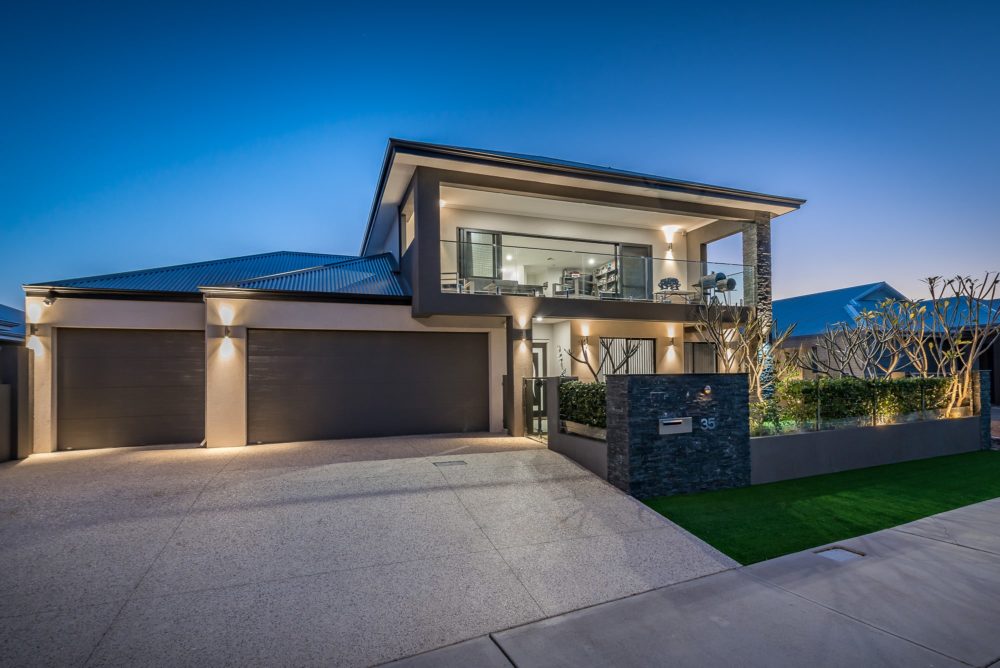People buy investment property to grow their wealth, as opposed to purchasing a home to live in. In Western Australia, and almost everywhere, buying rental property with the intention of renting it out is considered a viable way to invest money.
However, since property investment entails a major financial commitment, it’s a decision that requires plenty of consideration. Besides, all types of investment involve a certain level of risk, and property is no exception.
You need to ascertain first whether buying rental property makes sense for your situation. It also involves careful preparation, research, and getting the right advice. And since you’ll be investing in a rental property, you’ll also need to ensure you work with a competent, reliable and trustworthy property manager.
That being said, rental property investment in Western Australia offers certain benefits.
The benefits of investment properties
The benefits of having a rental property are possibly the strongest justifications for investing. If nothing else, most investors aim to build a strong rental portfolio, which might be the finest retirement asset for individuals looking to secure their senior years.
Here are some of the biggest advantages of investing in a rental property:
Cash flow
Buying rental property is just the beginning. When you’re able to find good tenants or rent out your property successfully, you’ll have a reliable source of rental income month after month and year after year. When you’re able to maintain a positive cash flow, meaning you have some profit left over after paying for expenses (mortgage, property taxes, utilities, etc.), that’s the time you can start growing your wealth.
Capital appreciation
Although capital appreciation may not be 100% guaranteed (as it depends a lot on location and other factors), it’s one way you can gain more value out of your investment property. In general, however, property value is known to appreciate over time, and this could prove to be a big bonus if you decide to sell your property after several years.
Passive income
When you have a good property manager taking care of your rental property portfolio, you know you’ll have money coming in regularly without the need to actually do much.
Safe investment
Investing in real estate is typically thought to be the safest type of investment because of its low volatility, despite the presence of other investment options, like equities, bonds, cash, etc. The risk associated with your investment is reduced because real estate is a physical asset. Besides, people will always need a place to live, so the risk of investing in a rental property is much less than, for example, a start-up tech company.
Access to equity
Equity is your property’s current market value minus any outstanding mortgage owed against it. If you have built enough equity, you can leverage it to get another loan which you can use to expand your investment property portfolio or for a different venture.
Multiple profit streams
When you invest in rental property, there are several ways to profit from it; that is, through rental yield, cash flow, appreciation, loan repayment and tax benefits. This means you’re earning money from your rental income whilst it gains value as the years go by. You’ll also be making loan repayments using your rental returns, not your personal income or savings.
Tax incentives
Tax benefits can also be had for any costs you incur on your rentals, such as maintenance costs, council fees, and property management fees. Additionally, if your expenses outweigh your rental revenue, this could offer tax advantages like negative gearing.

Types of rental properties available
When shopping for a rental property, there are many distinct types. Common rental property types include:
- Freestanding houses
- Terrace
- Semi-detached houses (semis)
- Duplex
- Townhouse
- Villa
- Holiday homes
- Apartments
Every type of rental property has its own advantages and disadvantages, so it’s crucial to build a tenant profile based on the community amenities available and the current property market. For example, freestanding homes in suburban neighbourhoods may be ideal for families.
How to find the right property for your objectives
Before taking the plunge, it’s important to consider which property type will give you the best return on your investment. Unlike purchasing a home, your investing goals and financial situation will influence your property choices.
Location is everything
- Close to the city or the suburbs? In which suburb will you be looking and why?
- Is there an underlying demand for rentals in this area?
- Will the property appeal to your target market?
- Is there proximity to public transport, schools, parking and outdoor space?
Apartments versus houses
- Do you want a freestanding house or a strata-titled property?
- Do you want a property with the potential to be subdivided?
- Is your goal long-term capital growth or higher rental yields?
- What other costs are there – insurance, repairs and maintenance costs – and are they affordable?
These are just some questions that should serve as your guide to finding the right rental property for you.
To determine how much of your own money you’ll need for property expenses, make an assessment.
- Will the projected cash flow be sufficient to pay for improvements you’ll be making to make it more enticing to tenants?
- Will the renovations result in superior capital gains and higher rental returns?
Any planned work on the property must be based on your investment strategy to ensure your money is not wasted.
How to set up and manage your rental property effectively
The next important choice you’ll need to make after investing in a rental property is whether to hire a property manager or take care of managing it yourself.
If you’re renting out a property for the first time and don’t know a thing about finding and screening tenants or other property management tasks, getting a professional onboard is your best choice.
With a property manager, you can have a consistent source of income and get quality tenants. They’ll assist you in getting the best results by analysing rental rates periodically and taking care of marketing, tenant screening, tenancy contracts, property inspections, repair and maintenance, and more.

What to look for in a tenant
Finding the ideal tenant for your rental property may take some effort and patience, but it’s well worth it.
Fortunately, there are traits to look for in prospective tenants that will help to simplify the screening process:
- Stable employment or source of income
- Good credit standing
- Clean criminal and eviction history
- Keen interest in the property
- Courteous, punctual and upfront
- Efficient documentation work
- References that check out
- Has long-term plans to live on your property
Investing in property with HKY Real Estate
Buying an investment property is a great way to grow your wealth. If you’re looking to buy an investment property or buy your first home in Perth, HKY Real Estate can help you find the perfect property for your needs.
For expert advice, get in touch with our friendly team today.
Rental Property Investment FAQs
Aside from the average real estate prices in an area, you should know what prospective tenants want in a home, as this will guide you in choosing a property. You also need to consider:
- Property market trends
- Employment opportunities
- The average rental income yield in the area
- Whether the demand for real estate exceeds the supply
- Growth prospects of or development plans for the neighbourhood
It would be worthwhile to get professional advice from a buyer’s agent or property manager if you’re unsure about your decision.
Aside from insurance, you’ll also need to budget for:
- Council rates
- Property management fees
- Repair and maintenance
- Strata fees (if you have a strata property)
- Vacancy costs
- Water rates
- Miscellaneous expenses, including land tax
You may also need to prepare for renovation costs, depending on the condition of the property.
If you’ve ever experienced managing a rental property, you already know how difficult it can be to deal with problematic tenants, fill vacant units, keep up with maintenance and repair issues, and more. Even though managing these things on your own is possible, hiring a property manager makes sense, especially if you are time-poor.
A property manager will handle all aspects of rental management. They’ll ensure you’re compliant with real estate legislation and state regulations, take care of the paperwork, find good tenants, collect rent, track down late payments and more.
Have more questions?



